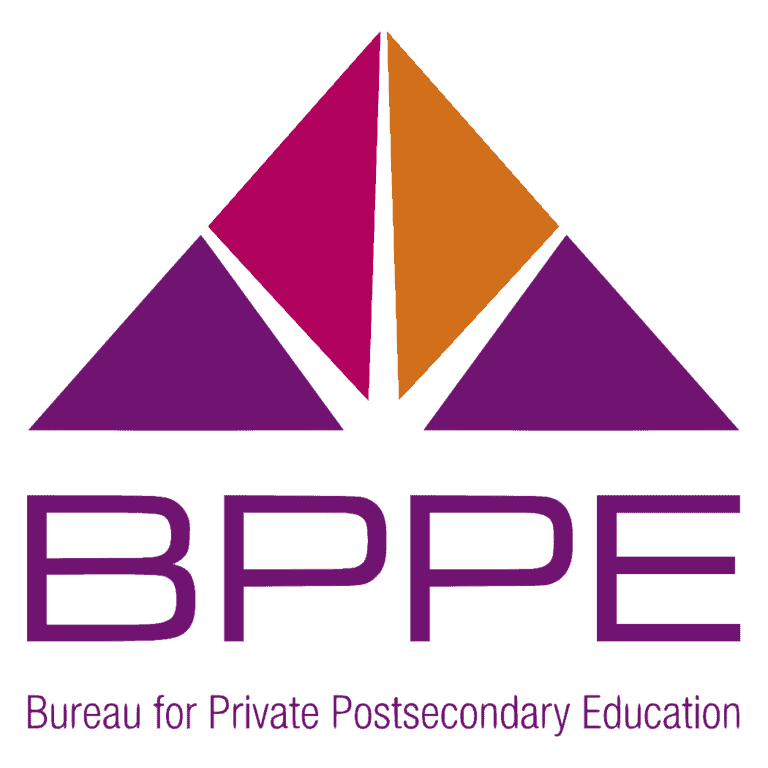Get the Skills to Become an International Manager

18-Month* Master of Science in International Management (MSIM) Program
International managers help companies expand into new global markets, driving growth and profits. Professionals in this field develop and implement business strategies that take into account international markets, global trends, and cultural differences.
The Master of Science in International Management (MSIM) program prepares international managerial leaders for education, business, government, and civil society. Designed for students from unique backgrounds, it offers an interdisciplinary curriculum focused on international managerial leadership and global competency.
The best way to see if San Diego Global Knowledge University is the right fit for you is to book an Admissions Appointment. You’ll meet with an Admissions Representative who will give detailed program and schedule information. Book an Admissions Appointment or Get more info.
Becoming a Skilled International Manager
In today’s complex, multinational environment, leaders must navigate many cultures and global markets while thinking strategically and acting locally. The Master of Science in International Management program develops essential analytical, social, and communication skills, equipping students to excel in international settings. With a practical, theory-based approach, it ensures graduates are ready to lead in an interconnected world.
The central theme of the Master of Science in International Management program is presented through a unique proprietary conceptual framework called International Managerial Leadership as a global competency, which includes key leadership, decision-making, administration, and global dynamics components.
Gain Leadership and Management Skills
The MSIM curriculum provides students with an intensive path of study that gives them a strong background in leadership and management in an international business context, creating situations that build experience in collaboration and project management. Through real-world projects, students gain hands-on experience in collaboration and project management while making a meaningful impact on individuals, organizations, and society. Each course contributes to a well-rounded perspective, equipping students to drive innovation and excel within global organizations.
Get Program Details Now!Apply Online
A Global Mindset for Today’s Economy
Organizations across all industries are experiencing global competition driven by an unprecedented rise in cross-border alliances, mergers, and expansions. As the world becomes more interconnected, skilled international managers unlock new markets, access capital and talent, and leverage global supply chains. Studying global management can help students become more engaged in global business and management practices around the world.
The Master of Science in International Management program equips you to lead in the evolving global economy by honing your ability to deliver swift, confident solutions using data, technology, and creativity. The Master of Science in International Management program will prepare you with a global mindset to excel in today’s complex business environment characterized by rapid-fire change.
Is an MS in International Management Degree Right For You? Find Out! Take the SDGKU “Master’s Degree Readiness Quiz”
This fun, online quiz takes 3 minutes to complete and you'll get a personalized report. Identify your strengths and social style plus the training and positions you're best suited for. Get Your Master’s Degree Readiness Score Now >>
Federal Financial Aid
If you qualify for funding, you may be entitled to government grants and loans, available at the best rates possible. Learn More
Career Opportunities
This program equips you for a wide range of business, international agencies, and government careers. You will be prepared for consultancy, leadership, and decision-making roles within international organizations and entrepreneurial ventures. With a multidisciplinary approach, the program offers a unique advantage, enabling you to excel in multinational firms, international operations, international business consulting, and development in entrepreneurship firms.
As a business owner, this program has helped me greatly and given me the confidence I needed to run my business. I have learned about multiple tools and methodologies that have made me a stronger leader. In addition, these tools and methodologies are critical because globalization and technology are changing the world at an increasingly fast pace. My studies at SDGKU have opened my mind and given me a lifelong foundation to be a better business executive.
100% Online and Hybrid Options Available
Our program is designed to fit the needs of busy, adult learners, so you can choose between our 100% online or hybrid learning option. Many of our students are raising families and some continue to work while going to school. We will help you choose a schedule that works for you.
No Prior Experience Needed
The Master of Science in International Management program at SDGKU builds on the Bachelor of Science in Global Management (BSGM) and is designed for BSGM graduates who want to enhance their management skills in an international business context. It also welcomes graduates from other bachelor’s programs around the world who are ambitious about pursuing a global career.
No prior professional experience is required to apply; however, we seek candidates who have demonstrated academic success, high ethical standards, respect and empathy for cultures, and a sense of professional responsibility and accountability. These qualities are essential for success as international managers.
- Analyze the concept of globalization, its evolution and current importance.
- Evaluate the concept of international managerial leadership competence (IML) to improve organizational performance.
- Analyze the systems approach to solve the increasingly complex problems of organizations with a global perspective.
- Evaluate the key dimensions of global competitiveness.
- Develop socially responsible business strategies with a global vision.
Textbook Costs & ISBNs: View Document
- Analizar el concepto de globalización, su evolución e importancia importancia.
- Evaluar el concepto de competencia directiva liderazgo internacional (IML) para mejorar organizativa.
- Analizar los sistemas para resolver los cada vez más complejos problemas de las organizaciones con una perspectiva global.
- Evaluar las dimensiones de la competitividad competitividad global.
- Desarrollar negocios socialmente con una visión global. global.
Details
- This program is offered in both online and hybrid options.
- There is no difference in cost between the two options and there are no additional associated costs for taking the hybrid option.
- The curriculum for both options is the same in terms of academic requirements.
- The hybrid option is offered to students who would prefer to attend in-residence sessions periodically.
- Non-local students are responsible for their own travel expenses and lodging.
Modalities
Online students study and attend class remotely for 100% of their curriculum, while hybrid students are required to both study online and attend in-residence sessions offered at the SDGKU campus.
Scheduling
In-residence sessions are scheduled prior to start date of a program or course.
Enrollment
If you are interested in enrolling in a hybrid program, please reach out to our admissions representatives for details on scheduled in-residence sessions dates and times.

Lead Faculty: Miguel Cardenas Jr, Ph.D.
Dr. Cardenas, Jr. is co-owner of San Diego Global Knowledge University (SDGKU) and serves as its Chief Academic Officer. His responsibilities include faculty and student academic review, academic assessment of programs and courses, as well as curricular planning and development. He has extensive experience in higher education regulatory processes, program development, and is a specialist in international business approaches and techniques.
He holds a B.S. in Biochemistry and Cell Biology from Revelle College of the University of California, San Diego (UCSD), an M.S. in International Management from San Diego Global Knowledge University, and a Ph.D. in Leadership with an emphasis in business, organizational psychology, and international relations from the Alliant School of Management and the California School of Professional Psychology at Alliant International University.
His areas of social science research include solar power and technology transfer, the global sports industry, and global leadership competencies. In the area of biochemical science, Dr. Cardenas has led research studies analyzing benign prostate hyperplasia (enlarged prostate) and the ocular and nasal trigeminal detection of pungency effects of volatile organic compounds (VOC’s). Dr. Cardenas Jr. has a unique understanding of the different components of human behavior; from its most basic at the cellular and molecular levels (organic) to the more complex individual and group levels (organizations).
As Chief Academic Officer, he has overseen several regulatory milestones for SDGKU, such as obtaining California state approvals to operate and achieving federally recognized accreditation. In addition, he leads several institutional processes for obtaining renewals of licenses and grants from government and private regulatory agencies. His experience as a student and faculty at public, private non-profit, and private for-profit educational institutions of small, medium, and large scale provides him a broad perspective of the educational industry, particularly in understanding value-added measures to evaluate institutions and degree programs according to their graduates’ likely economic outcomes.
Course Descriptions
The persistent and controversial process of globalization that communities, organizations and individuals have experienced with increasing intensity in recent years, fueled by the explosion of telecommunications and information technologies, has generated a “New Economy” in which markets, resources, productivity, organizational values, and other factors of competitive success are now more “knowledge-based” and held to standards of world-class performance. Competent managers must now be able to understand the dynamics of this complex new reality, provide leadership, and make decisions within this internationalized environment, implementing change and innovation constantly. This Module presents key element of this new context crucial to the role of successful managers and leaders within business, education and government.
3 credit hours | Prerequisite: none
Global competitive success will increasingly depend on the competence and adaptability of our workforce and its productive environment. Global demographic trends and workplace dynamics are now strategic elements of all key managerial decisions, given the changing nature of work and job markets. This Module presents key competencies, workforce dynamics and organizational strategies that managerial leaders must now incorporate to be able to maximize the productive potential of an organization’s most valuable assets, namely, its human resources.
3 credit hours | Prerequisite: IM 501
Modern managerial practice requires the application of the systems approach and methodology. This is the basis for the development of emotional, technological and knowledge (“ETK”) competencies as the framework for a new international managerial leadership (“IML”), which will increasingly be the key to the successful role of managers in this Third Millennium. This Module presents the conceptual and practical aspects of the systems approach and methodology, the “MAC” road to success, the broad ETK competence, and the more specific IML competence with its certification guide and standards manual. These topics represent the learning and performance framework for the subsequent Modules of this course.
3 credit hours | Prerequisite: IM 502
The emerging global marketplace and intense competition at all levels mandates that managerial leaders visualize and plan for the future systematically and with an “intelligent” or adaptive strategy. They must “empower” others around them with a strategic vision and shared-learning mechanism that focuses strengths and energies on those actions needed to achieve the required goals within the mission established for the organization or community of interest. This Module presents the importance of visioning at the individual and organizational levels, guidelines for implementing visioning programs and strategic plans, the concept of the “learning” organization, and the challenges involved in applying these concepts internationally and globally.
3 credit hours | Prerequisite: IM 503
Management without effective leadership cannot be afforded by competitive organizations and communities today. World-class business, education and government require decision-making with competence to convince others to perform in the interest of common goals. This Module presents the concept and development of leadership as an essential human competence, the strategies of empowerment, the ethics and responsibilities of effective leadership in a globalized environment, and the strategies for creative teamwork and coaching.
3 credit hours | Prerequisite: IM 504
Environmental responsibility is increasingly a key competitive advantage for organizations and communities around the world. Managerial theory and practice today cannot be sound without recognizing environmental quality as a strategic resource to be protected and enhanced. This Module presents the concept and strategies of implementing quality systems and standards, such as ISO 9000 and ISO 14000, the costs and training challenges involved, outlooks on certification norms, procedures and benefits, and the growing workplace toxicology, viral agents and other risks caused by globalization and world inequities.
3 credit hours | Prerequisite: IM 505
Effective managerial leadership requires the formulation and implementation of appropriate strategies to protect and enhance the health and well being of our human resources and minimize associated productivity risks. Health is increasingly the most precious asset we have at the individual, organizational and community levels. This Module presents the inter-relationships between work, health and the environment, strategies to improve productivity in the workplace, the influence of “stress” and other growing global disease, the value of organizational “spirituality”, and the concept of integrated risk management and planning.
3 credit hours | Prerequisite: IM 506
Organizations and communities are increasingly networked and geographically disperse. Managers at all levels must now face the challenges of collaborating at a distance and in networks. Telecommunications and e-technologies are enabling us to operate increasingly effectively within this new modality of interaction and performance. This Module introduces the competence of distance activity and networked collaboration, its international professional standards and certification, the sequential use of technologies as a strategy to optimize work in human networks, the e-organization, and the realities of managing virtual teams.
3 credit hours | Prerequisite: IM 507
The explosive growth of telecommunications has truly created a new global electronic village in which business, education, government and civil society must now collaborate and compete. The global communications highway is now a huge network of wired and wireless connections that support video, voice and data transfer and exchange, with regulatory, ethical, financial and political challenges that managerial leaders must be able to incorporate boldly and effectively. This Module presents the nature and characteristics of this global electronic village, the challenges and opportunities it presents to decision-makers, the applications and evolution of satellites, digital telephony and the Internet, e-commerce, and the educational/training challenges derived from a technology-oriented society.
3 credit hours | Prerequisite: IM 508
The “New Economy” has motivated a new culture of good customer service and superior client-oriented performance. Total quality, Just-in-Time, re-engineering and other new management approaches advocate this concept as a strategic value crucial for success in the new competitive-cooperative environment we face today. Managers must benchmark or learn from competitors to gain or maintain productive leadership. This Module presents the characteristics and requirements for developing a commitment to customer satisfaction, the concept and methodology of benchmarking, the principles for service excellence, and the implementation of client-relationship management systems.
3 credit hours | Prerequisite: IM 509
The quality movement has evolved from a product/service-oriented managerial approach to a more integrated and systems-oriented strategy that emphasizes optimal resource allocation and continuous improvement at all levels. This Module presents the evolution and standards of international total quality, the concept of global intelligence and performance competence, the strategic value of emotional and multi-cultural competence, the requirements for managerial excellence, the ETK conceptual framework, and the basic elements of organizational responsibility.
3 credit hours | Prerequisite: IM 510
Globalization and intense competition have fueled the transfer of knowledge and free trade as never before. The process of identifying, negotiating, transferring, blending and adapting new technology is now an essential strategic component of the success of any organization or community. Effective managers must be capable of transforming know-how into marketable value that can sustain their leadership and prestige. This Module presents the concept and practice of “commercial diplomacy,” the approach and protocols of international technology transfer and management, the realities and opportunities of electronic commerce and trade, and the strategic nature of knowledge protection and management.
3 credit hours | Prerequisite: IM 511
During this course the student first takes the IML global competency exam requiring a minimum passing score of 80%. The student’s next task is to report on a practicum project of International Managerial Leadership. This must be a real project that shows results of implementation. The student then develops and submits a Directed Research proposal that illustrates an understanding of the topics presented in courses 501 through 512. The student receives feedback, recommendations for implementation, and a course grade.
3 credit hours | Prerequisite: IM 512
During this course the student implements a pre-approved proposal of Directed Research documenting experiences and results. The student receives guidelines for evaluating results and outcomes, as well as a course grade.
3 credit hours | Prerequisite: IM 513
During this course the student evaluates the Directed Research proposal, results and outcomes, explaining the criteria for evaluation, assessment methods and final conclusions. The student receives approval or rejection of the report, a course grade and if satisfactory, recommendation for candidacy to obtain the Master of Science Degree in International Management.
3 credit hours | Prerequisite: IM 514
Is a Career as an International Manager Right for You? Get More Info…
If you’re interested in learning more about careers in International Management and exploring whether San Diego Global Knowledge University is right for you, fill out the form on this page to receive more information.
For immediate questions, call (619) 934-0797.
Frequently Asked Questions
*Program length when completed in normal time.



